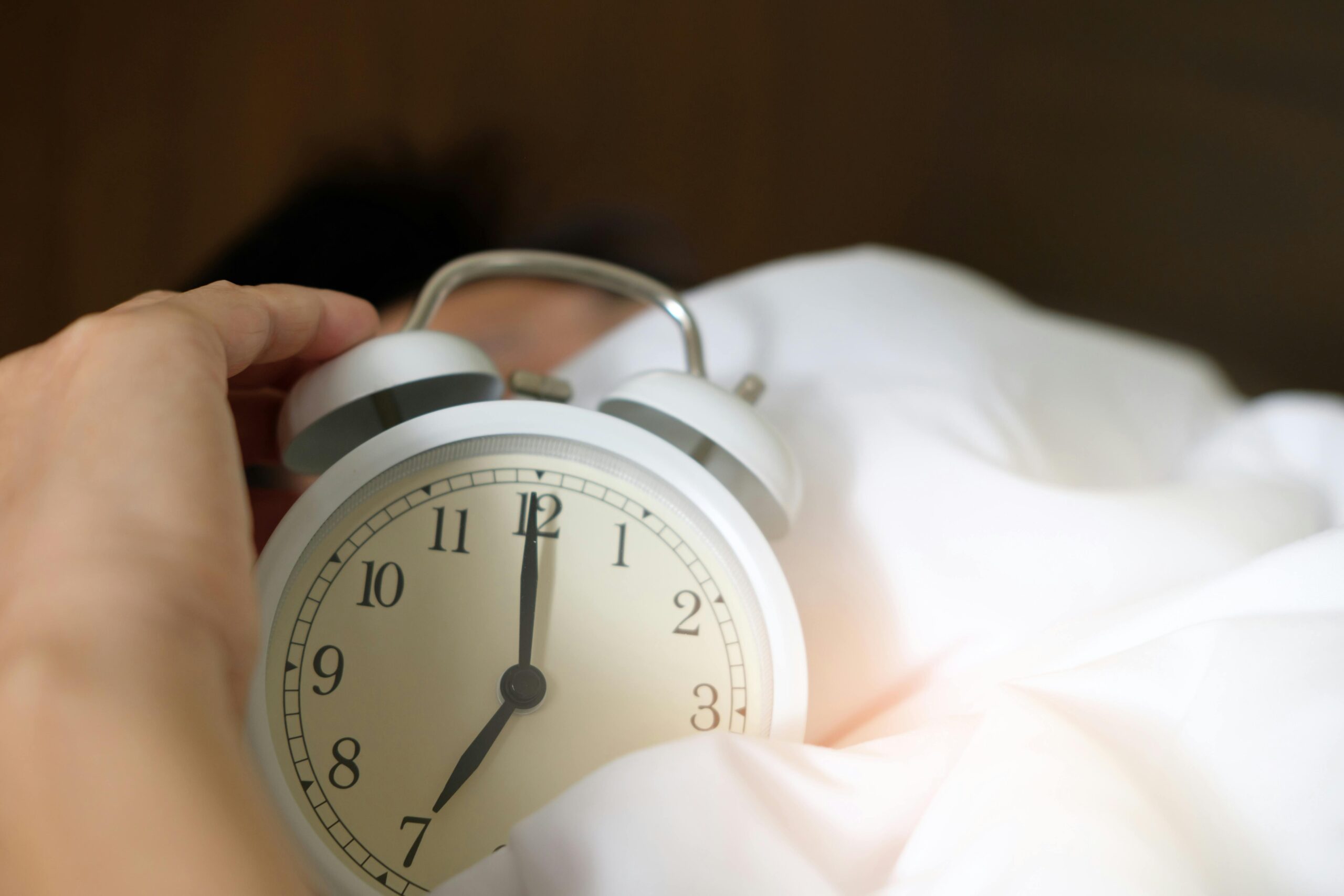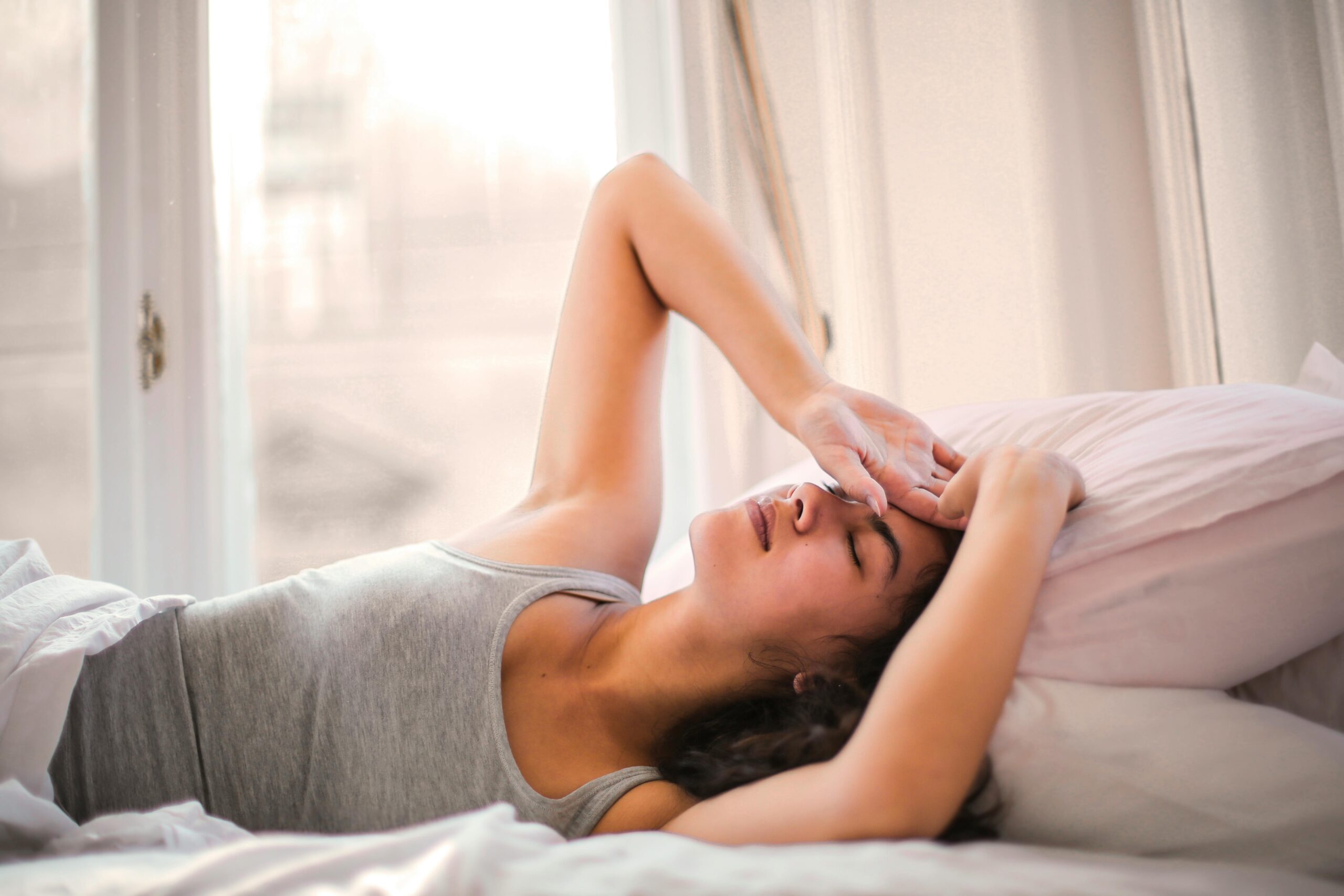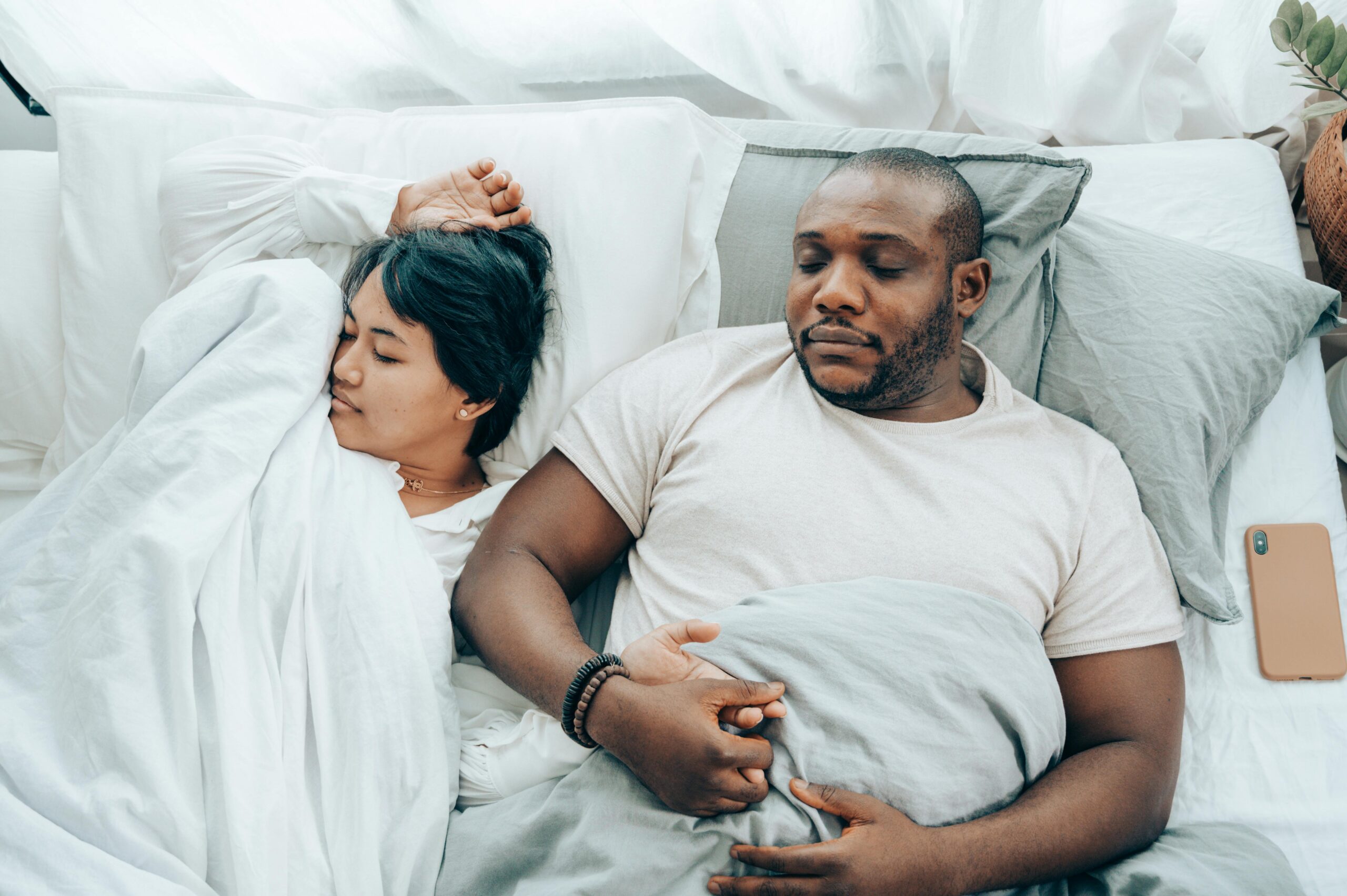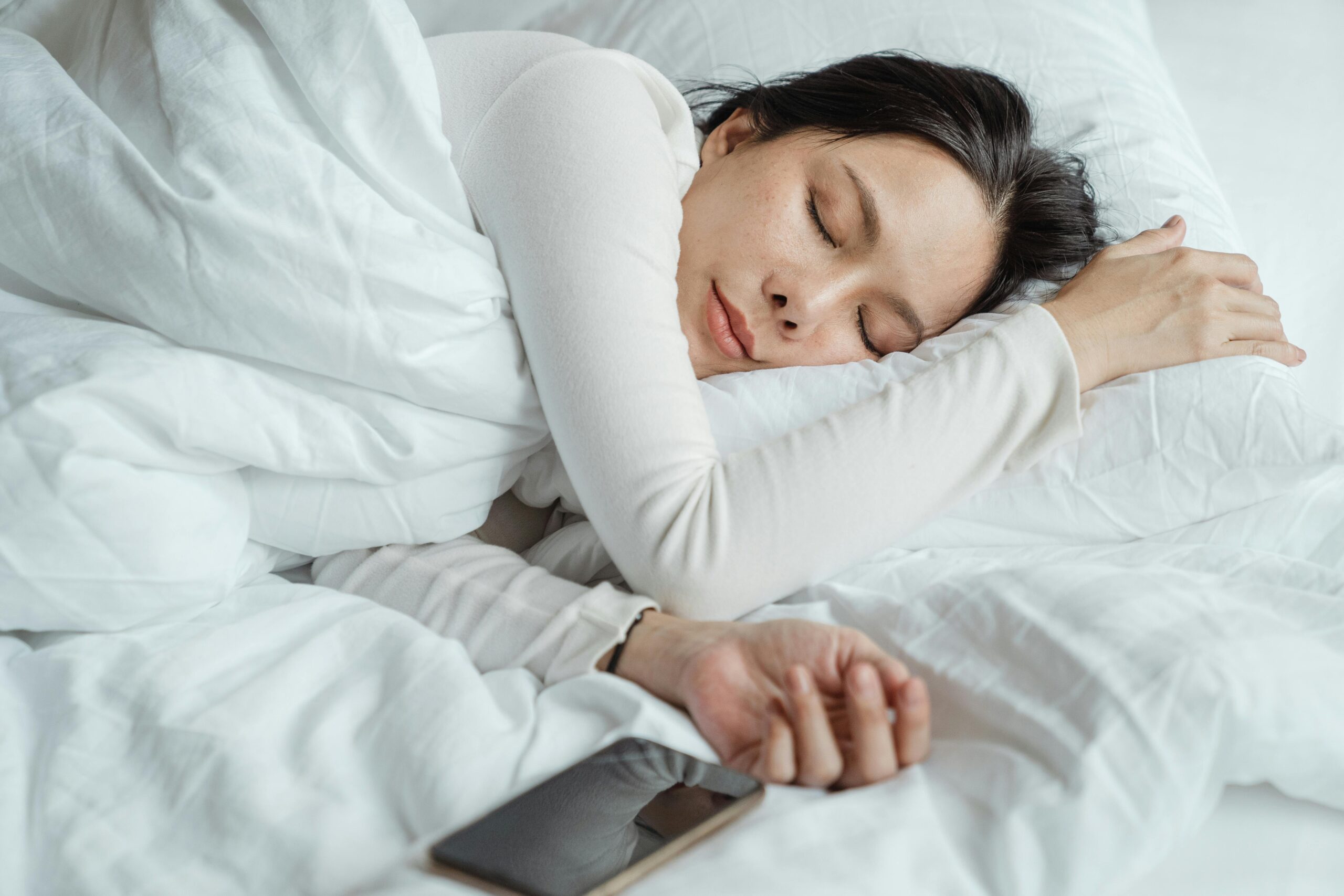Learn how to mindfully use your sleep data without losing sleep over it.
Your silent alarm wakes you up as your fitness tracker vibrates on your wrist. After tapping to turn it off, your next move is almost automatic: grab your phone and check how you slept. You’re eager to see how much time you spent in each sleep stage, whether your resting heart rate is on point, and if your heart rate variability has improved. You’re hoping for a high sleep score so you can wear it like a badge of honor.
But instead of feeling reassured, you feel stressed because you didn’t hit your sleep goals—again. It feels like failing before the day has truly started. I know it’s frustrating because I used to do this all the time, even on days when I felt rested.
This growing fixation on sleep data from wearable biometric devices—like Apple watches, Oura rings, and Whoop bands—has led to what sleep researchers call Orthosomnia. It’s not recognized as a medical disorder yet, but it’s a term to describe the obsessive pursuit of perfect sleep, creating anxiety and ironically worsening sleep quality.
The sleep-tracking functions of a wearable intend to keep us informed and help improve our rest, but for some, they do the opposite. As this technology continues to popularize, it’s important to be honest with yourself. Are your sleep metrics impacting your mental health? If so, it’s time to test ways to mindfully use your tracker and regain balance for your well-being.

How sleep trackers can stress you out
Being committed to your health and wellness is a good thing. But it can be easy to overdo it. Orthosomnia convinces people that each night is critical. And the more data we have at our fingertips, the more opportunities we have to scrutinize our “performance.” Some people start to feel drawn to analyzing every fluctuation, constantly tweaking their habits as they try to optimize every second of their lives. There’s a fine line. And once it’s crossed, over-optimization can complicate the simple act of taking care of our minds and bodies.
Orthosomnia can manifest in both psychological and physical ways, taking the joy out of sleep. On the mental side, obsessing over metrics and being fixated on a “low” sleep score can create anxiety, perfectionism, and a constant sense of falling short. Physically, the stress can disturb actual sleep, leading to increased wakefulness and poorer overall sleep quality.
In some cases, people experience what’s called paradoxical insomnia—they believe they slept poorly, but they actually slept fine. The anticipation and anxiety caused by an obsession with sleep can carry over into the next night, worsening a problem that may not have initially existed.
Read more: How to Combat Sleep Anxiety
Are sleep trackers still worth it?
Despite the risk of orthosomnia, wearables are still worth trying if you want extra support for your health and fitness goals. For sleep, trackers help you stay aware of patterns you might not notice otherwise, such as inconsistent bedtimes or frequent disturbances. Even if these devices aren’t 100% accurate—they tend to overestimate sleep times slightly—studies show they offer close estimates of sleep stages, patterns, and long-term trends, helpful for making informed adjustments.
Most devices’ apps also offer tips and reminders to help you establish better sleep routines and even guided breathing exercises for destressing and winding down. Overall, wearables encourage positive behavior change. But they only work if you’re intentional with how you use your tech.

Read more: 6 Ways to Recover After a Bad Night of Sleep
A balanced approach for sleep tracking
1. Set boundaries
Try limiting how often you review your metrics. That could look like once in the morning and once in the evening, only once a day in the AM or PM, or even every few days to avoid obsessing over daily fluctuations.
2. Gauge how you feel first
Instead of letting the numbers dictate how rested you think you are, go back to basics and tune into your body before checking your metrics. How does your body feel overall? Do you feel refreshed or groggy? Are you irritable, anxious, or content? If you’re feeling good, don’t let a poor metric ruin it for you.
3. Focus on trends, not single nights
Instead of stressing over one rough night, look for patterns over the course of a few weeks or months. It can take several months to build a reliable picture of your sleep trends as your device collects data, but once you have it, you can make more thoughtful adjustments.
4. Don’t self-diagnose
Sleep trackers can show irregularities and valuable insights but are not a substitute for professional medical advice. If your data suggests reoccurring issues—like taking a long time to fall asleep or waking up frequently—consult your doctor or a sleep specialist before jumping to conclusions. Your tracker can be a part of the conversation but shouldn’t have the final say.
5. Avoid comparison
Everyone’s daily experiences and sleep needs differ, so don’t compare your sleep data with your partner, friends, or people online. Countless factors affect your sleep each day— like personal health, activity level, what you eat, and when you do things. No one wins playing the comparison game.
6. Temporarily hide your metrics
If sleep tracking is contributing stress to your life, consider taking a break from viewing your data. For example, some fitness trackers allow you to hide your metrics temporarily—perfect for vacations, weddings, competitions, or other days you need to disconnect and stay present. Your device will still collect your data, so you won’t have to worry about affecting your trends.
7. Make healthy sleep hygiene a priority
Remember that good sleep hygiene is the foundation for restful nights. Stay consistent with your sleep schedule and enjoy a relaxing bedtime routine. For an added layer of comfort, consider upgrading to an organic mattress and pairing it with customizable pillows and cooling cotton sheets.
Simple habits like these can significantly improve your experience with using a sleep tracker so you can focus on what really matters—how you feel.

Read more: How to Create a Sensory-Balanced, Peaceful Bedroom
Have feedback on our story? Email [email protected] to let us know what you think!

Shop Pillows
The Essential Organic Pillow Collection
Gentle, breathable, non-toxic support.







